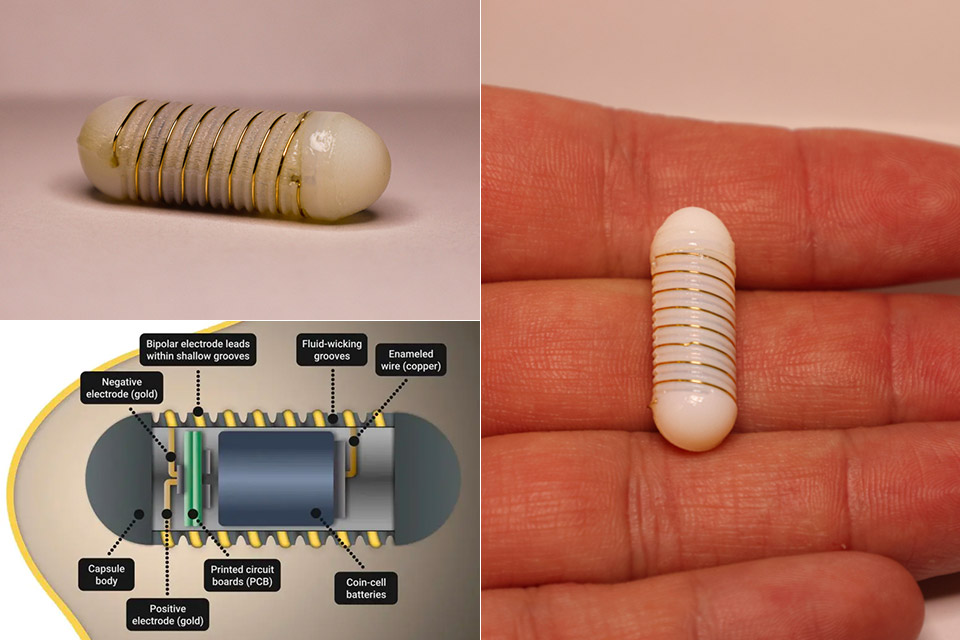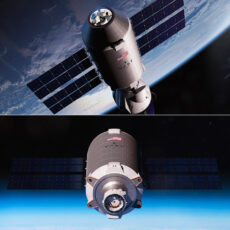
MIT researchers have developed an ingestible electroceutical FLASH capsule that can increase or decrease appetite by stimulating hunger-regulating hormones. They tested it on animals and discovered that this electrical stimulation therapy boosted ghrelin production in their stomach. This suggests that the approach could eventually be adapted to deliver electrical stimulation to other parts of the GI tract.
Unlike standard capsules, FLASH consists of grooves with a hydrophilic coating that function as channels that draw fluid away from the stomach tissue. Battery-powered electronics inside the capsule produce an electric current that flows across electrodes on the surface of the capsule. Future versions will be designed so that the current can be wirelessly turned on or off. In humans, a FLASH capsule could potentially replace or complement some of the existing drugs used to prevent nausea and stimulate appetite in people with some eating disorders.
No products found.
We were inspired by that to incorporate surface textures and patterns onto the outside of this capsule. That surface can manage the fluid that could potentially prevent the electrodes from touching the tissue in the stomach, so it can reliably deliver electrical stimulation,” said James McRae, MIT graduate student.








